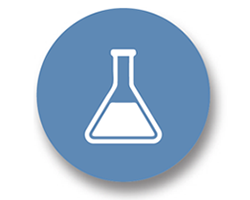National laboratory systems

A well-managed, quality-assured laboratory system plays a crucial role in health emergency preparedness and the timely detection of public health threats. It is vital to maintain systems that ensure reliable, safe and timely collection of specimens, as well as their transport, characterization and shipment to reference laboratories, and the sharing of results.
States Parties will:
- a. implement national laboratory strategies focusing on quality assurance of public health laboratories including human, environmental and veterinary laboratories;
- b. establish, maintain or strengthen national and international referral systems for biological and environmental specimens, based on a One Health approach;
- c. implement the biosafety regime in the European Region; and
- d. link networks of laboratories to effective reporting mechanisms and surveillance systems in accordance with international strategies.
The Regional Office will provide leadership, together with key partners, to:
- a. support States Parties, upon request, in establishing and maintaining national quality-assured laboratory networks;
- b. establish, maintain and strengthen quality-assured regional laboratory networks for emergency preparedness and response, building on existing WHO and other international laboratory networks, and promote international information exchange between laboratories;
- c. support States Parties, upon request, in establishing and improving national and international referral systems for clinical and environmental samples through the development of national sample referral guidelines and export permits, the WHO Infectious Substances Shipping Training, and training in bio-risk management;
- d. ensure dissemination of, or develop where needed, examples of national good practices of public health laboratory systems that can serve as models for countries undergoing laboratory restructuring and laboratory quality training; and
- e. support the development of laboratory human resources capacity.



